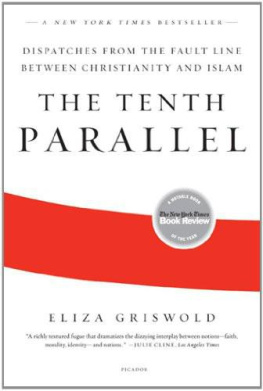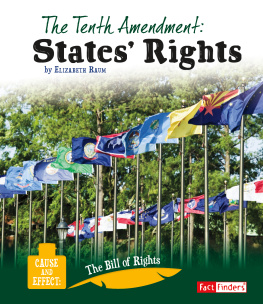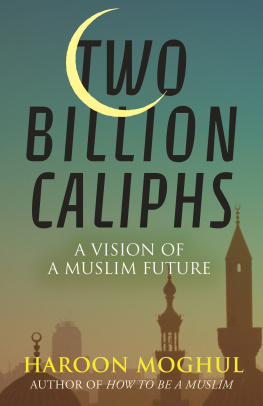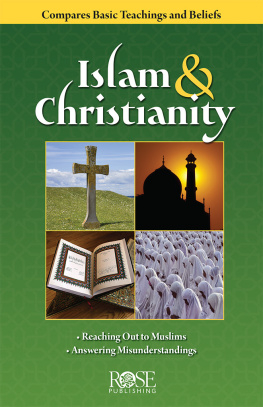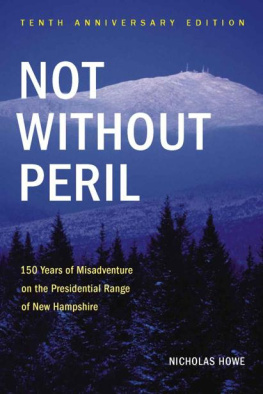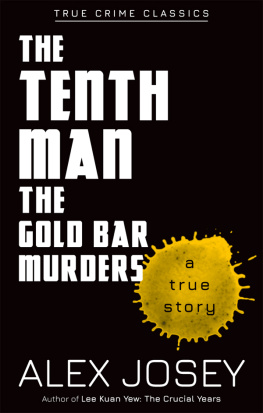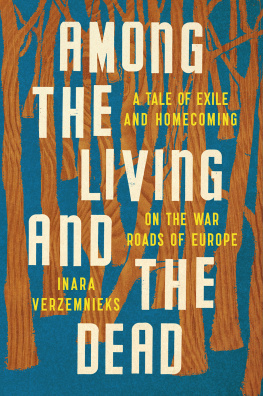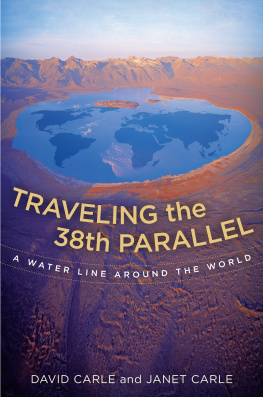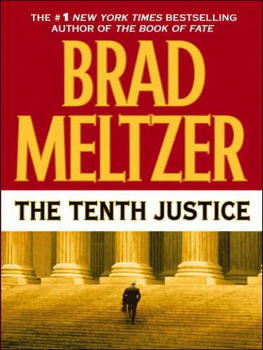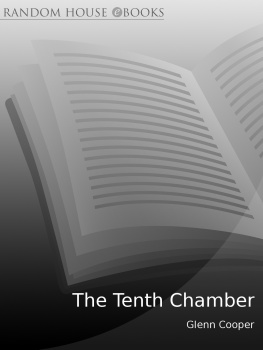ALSO BY ELIZA GRISWOLD
Wideawake Field: Poems
EPILOGUE
This is what I see: my muddy green flip-flops and, a few steps ahead along the slippery hedgerow, a pair of darker-skinned feet in leather sandals. The man in front is speaking to me, but his French is hard to understand. He talks as if theres gravel in his mouth. As we trudge along the raised dirt hump that marks the edge of a cornfield, I run my eyes along his narrow back, clad in a white robe. A nylon backpack swings awkwardly from his prominent shoulder blades. He calls himself Reverend Abdu. I dont know how old he ishe could be forty or sixtyand neither does he.
I am dragging myself along the tenth parallel in Nigeria, and I am nearly asleep on my sore, crusty feet. One village has begun to bleed into another, thanks to the steep angle of the light, a grueling gray light that is the same from here to Sudan to Indonesia to the Philippines. The air is so humid its impossible to tell where the moisture ends and my necks sweat begins. The crickets drone, a tone lower than that of the endless trudge of our feet, as we go to meet people who do not want to be metpeople who have left the road behind on purpose.
A childs cry of horror goes up from within the cornstalks, and Reverend Abdu stops walking and turns to me. The child cried out when he spotted me, the reverend explains: the people we are going to see have never seen a white person before. They think you are the devil, because their devil is white, he says. They are afraid you will curse them and turn them white, too.
Reverend Abdu lives only a few miles away from these fields, but he is an outsider, a native of the northern, French-speaking country of Niger. Born in a village called Adunu, he began his life as Abdullah Ahmadu, a Muslim nomad. When he was a small childperhaps five years old, he thinksthe village was visited by evangelical Christians from the Sudan Interior Mission (founded a century earlier to bring the Gospel to the 60 million souls of the Soudan). As he tells it, after hearing the message that Jesus had come to redeem the world, the villagers decided to convert en masse to Christianity, and he was born again. The notion of describing the childhood experience makes no sense to him. I met Jesus and he saved me, is all he will say. In 1981 he left Niger and came south to Nigeria to teach his former kinsmen, ethnic Fulani Muslim herders, about salvation through Jesus Christ. At some point he began introducing himself as Reverend Abdu, consecrating himself with the name.
Reverend Abdus name, like those of so many other people I had metAhmed Santos, the Muslim revert in the Philippines version of Guantnamo Bay; or Mujahid Masih, the warrior for Christ at the Voice of the Martyrs conference in Franklin, Tennesseeheld together a complicated identity. Abdu was a cowless Fulani herder, a citizen of Niger, a former Muslim. It mattered most to him that he was a Christian, and yet he wouldnt say why he was a Christian, other than that he had met Jesus and, in his own fashion, followed Him.
I had first met Reverend Abdu by following a signboard for a mission outposta square of white wood reading, The Great Commission, with an outline of Nigeria split by a cross, the crossbar running along the tenth parallel. Id first seen this sign a year earlier, while driving around the hilly Middle Belt capital of Jos in the gold minivan Id borrowed from Pastor James Wuye and the imam Nurayn Ashafa. I hadnt had time on that trip to visit the offices of the Great Commission, so when I returned to Jos the next summer, I went looking for the signboard. But the governor had ordered all such signs taken down, lest they contribute to the ongoing religious violence. With Haruna Yakubu, the minivans savvy driver, I spent hours pulling off the road and peering behind locked gates, until I spied the displaced sign leaning against a compounds high wall. We found the gatekeeper of the place, who let us in, and there I met Reverend Abdu for the first time.
He had just completed a training course at the Great Commission compound, learning how to evangelize Muslims from an American missionary who had translated the New Testament into Fulani. He was about to hitchhike hometo a shanty a five-hour drive northwest of Jos. I offered him a ride, and he took me along to watch him in action, evangelizing among the nomads.
We had set out long before dawn. At daybreak, somewhere on the road northwest of Jos, we left the minivan by the roadside and headed on foot into the six-foot-high cornfields, searching for nomads cattle camps. Now, as we hiked along the ordered grids of other peoples crops, the sugary scent of sweet corn gave way to the muskier smell of livestock. Then we spied their dull coats in a wallow off to the right: thirty cows moving tightly around one another like a school of hungry fish waiting for food to drop from the sky. The reverend turned left and cut through the bush, and I followed him. Within minutes we had broken into a clearing of pounded earth large enough to hold two grassy igloos. A bicycle was propped against one, and a man, a woman, and a girl of maybe ten, the last holding a baby, crawled out of a low doorway to greet us.
The father eyed the reverend narrowly. He looked to be in his forties. He was broad and thick-muscled, and did not seem thrilled at the arrival of visitors. His name, he told us, was Mallam Ibrahim. (Mallam, like mullah, is a general term for Islamic teacher or scholar.) His was a family of nomads, he said. We dont have our own land. It was too dry for them to stay among their own people in the northeast of Nigeria, and drought had driven them, twenty members in all, to these trammeled cornfields, where they hoped to go unnoticed. That was impossible. Even I could see that the cows had already flattened someones harvest. The situation would not remain peaceful for long.
The last thing these nomads needed was attention from a freestyle Fulani evangelist and a white Western reporter. To try to ease the tension, I asked Ibrahim how many cows he had, a question that Reverend Abdu translated into a mixture of French and Fulani, indicating that this group had likely made it as far as neighboring Chad, or Niger, both former French-speaking colonies. He didnt want to answerI had misjudged the question, thinking it was as harmless as discussing weather. As it turned out, asking these herders about their cows was akin to asking how much money they had, since the cows were all the wealth they had in the world. Its a secret, Mallam Ibrahim said, his eyes thinning to slits, as if I were trying to take the cows from him.
The reverend pulled a portable solar-powered DVD player from his backpack and set it up on a stump. Who is Jesus? he asked Ibrahim, translating the questions and answers for me as he posed them.
I dont know, Mallam Ibrahim said.
Who is Mohammad?
A Muslim.
When Reverend Abdu opened the DVD cover, however, it turned out hed brought a disc of Christian music videos by mistake. He slid it into the machine anyway. Singing and dancing people appeared on the screen for a few seconds, and then the screen went blank.
I forgot to charge it, Reverend Abdu said sheepishly. The American at the Great Commission compound had given him this high-tech machine, he said, but in order to make it work here in the bush, he had to leave it in the sun for several hours beforehand, and this he had forgotten to do. In the sticky silence, he turned to Ibrahim and asked, Will you accept Jesus?
No, Ibrahim answered. It will unsettle our Muslim prayers. I like the way I pray, and I am not changing it.
There was silence but for the crickets rubbing their legs together and the cows swishing their fly-and-shit-covered tails. There wasnt much else for the reverend to say. He changed the subject, telling me, These children do not go to school. Their father refused to let them go.
Next page
